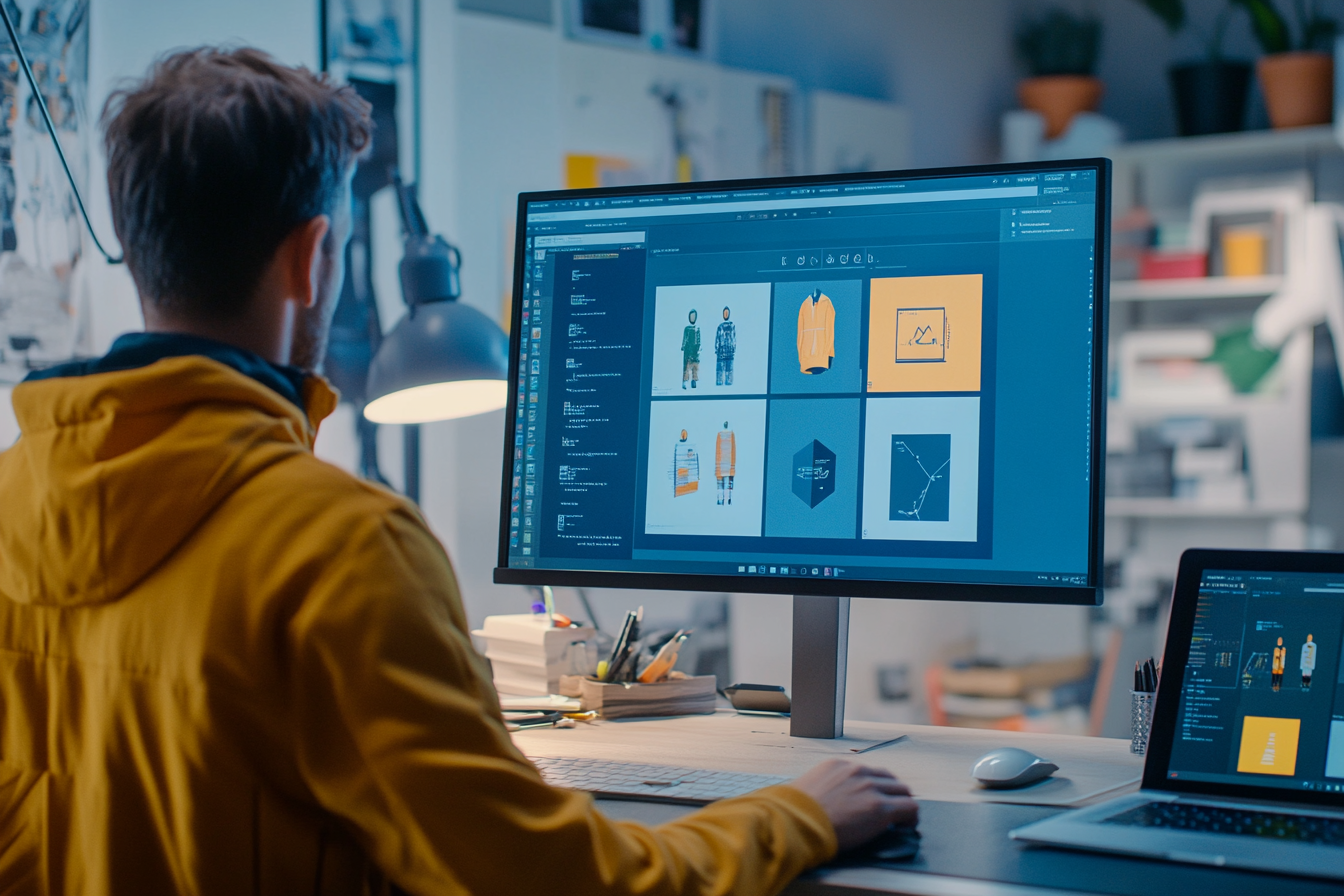Today, businesses launch and grow at unprecedented speed. Advanced technologies, software, and access to the Internet have made it easier than ever to enter the business landscape. Yet, they also made it incredibly hard to survive because the competition is growing exponentially to the number of businesses out there.
With increasing competition in nearly every niche, business-related design (whether graphic or website) is also changing significantly. It’s becoming more informed and data-driven, and it definitely places more focus on branding.
Branding is already the backbone of design. Moreover, it already makes graphic and web design work together, albeit these are two different fields. So, if you are a freelance designer or an agency owner/employee, take your time to explore this matter with me to get ready for the future. Or, suppose you’re a design student who’s just getting ready to enter the design market. In this case, it can be helpful to find a paper writing service to “do my math” and delegate time-consuming assignments to professionals because what we’re about to explore here will definitely help your future career!
Importance of Branding in the Modern Business Landscape
Before moving any further, let’s explore why branding is such a big deal today.
👀 The way clients search for freelancers has changed — stay visible across Google, ChatGPT, and AI platforms with Semrush One and land your next freelance client. Click here to see what you’re missing »
What is branding in the first place? The word “brand” could define a name, design, symbol, or any other unique feature of a company (seller) that makes it stand out from the pack. Today, it’s rather a mix of things that emphasize the company’s uniqueness, from specific colors to the way its website looks.
Why does it matter so much? As of 2024, there are 359 million businesses around the world. Can you imagine the competition? Well, the truth is that getting noticed among such a huge pool of companies is hard, and that’s what branding is meant for. It’s there to make a business recognizable and ensure consumers won’t mistake it with any other company. But that’s not all.
Apart from creating a recognizable image, today, branding is also about building trust. When it’s authentic and consistent across all channels, it makes consumers feel confident in their choices, which can contribute to a company’s growth.
Graphic Design vs. Web Design: What’s the Connection?
As I said earlier, branding in today’s business landscape is a combination of features rather than an original branding element. Often, it’s a blend of many different things, which makes it crucial for different design branches to work in alignment and not independently.
This applies to graphic design and web design. At first glance, these are two completely different subdivisions of design that aren’t really connected:
- What is graphic design? It’s the art of designing visual communications that deliver certain messages to target audiences. These communications can greatly vary in form, ranging from the designs of advertising banners and brochures to product packaging design.
- What is web design? It’s the art of designing websites. It involves creating the actual layout and design of a website, as well as additional tasks, such as user interface (UI) design, user experience (UX) design, and more.
As you can see, these two areas of design operate in two completely different dimensions. Yet, for the sake of efficient branding, they must now work together. Why? To ensure the uniformity of a brand in all its manifestations, from a website to the way its packaging looks.
You can look at many great web and graphic design examples of famous companies that confirm this statement, such as the sleek and minimalistic design of a website and other brand materials of Apple that all look uniform.
Unlimited graphic design services allow businesses to maintain this level of consistency across various platforms without the limitations of traditional design constraints. People in both web and graphic design jobs need to understand how to complement each other’s work, ensuring that the brand’s visual identity remains cohesive and impactful.
The Role of Graphic Design in Establishing Brand Identity
In terms of branding, graphic design completes several big roles:
- It creates the overall visual identity of a company. People in in-house and remote graphic design jobs basically create the entire appearance of a brand, including its color palette, typography, logo, and so on.
- It communicates deeper meanings to the target audience. Through graphic design, companies can convey their unique brand personalities, missions, and values. This is pivotal for establishing an emotional connection between customers, prospects and the brand.
Overall, graphic designers create a broad brand identity and imagery that serve as every company’s “face.”
The Role of Web Design in Shaping Brand Experience
While graphic design mostly deals with the perception and recognition (the “look”) of a brand while also emphasizing its values, web design plays a different role. It creates the “feel” of the brand by shaping user experiences.
Enhancing your brand’s visual identity involves integrating not just graphics, but also strategically crafting user experiences through robust website features. Factors like intuitive UI and cohesive website content structure play a pivotal role in shaping users’ perceptions and interactions with your brand online. Exploring the most important pages to include on your site can significantly impact these user experiences.
It performs a number of important tasks:
- Shaping an intuitive UI design that makes navigation of a website a breeze and helps users interact with a brand easily and effectively.
- Delivering outstanding UX that leaves users happy and loyal.
- Ensuring that the brand is accessible to all users, including those using desktop and mobile devices.
But that’s not all. In addition to these technical aspects, web design should also act as an extension of graphic design. It should reflect the same brand identity and look through cohesive website design. This means using the same fonts and color palettes and leveraging other elements of graphic design. To get this right, many businesses rely on web design agencies like Bizango to guarantee that every aspect of their website aligns with their brand’s core values and messaging.

How Graphic Design and Web Design Collaborate for Strong Branding
Given the important connection between graphic and web design in terms of branding, for agencies and freelancers, it’s pivotal to demonstrate an in-depth understanding of this connection and the ability to work in alignment. To ensure that you can emphasize this in your agency’s advertising or in a web or graphic design resume, let’s clarify the specific ways in which these two branches of design can collaborate:
Visual Language
The first and most obvious area for collaboration is the overall visual language of the company. Web and graphic designers can work together to ensure a unified language across all brand materials.
To accomplish this goal, it’s important for the initial graphic design process to outline well-defined brand guidelines. These guidelines should include instructions on using colors, typefaces, and other design elements to establish a uniform visual voice, and they can be then used for web design.
Visual Hierarchy
A less obvious way for graphic and web design to work in alignment is to create a visual hierarchy and improve the readability of the website.
With the help of graphic design elements, such as banners, infographics, and images, web designers can implement visually light and readable site layouts and hence, create a better visual hierarchy.
Brand Message
Clear and consistent messaging is a pivotal part of branding as it helps companies speak to their target audiences and convert them. Together, graphic and web design can be used to refine brand messaging in the following ways:
- Integrating meaningful visual communications in website design for coherent brand messaging.
- Identifying the most efficient ways to place text-based and visual content on the page for the most impactful message.
- Finding a balance between graphics and text for clearer communication.
- Ensuring the consistency of brand message across all mediums, including a website, emails, social media, etc.
Emotional Connection
Lastly, I want to emphasize that both graphic and web design appeal to the audience and their emotions. Together, engaging visuals (elements of graphic design) and seamless user experience (web design) can help companies establish meaningful emotional connections with their customers and prospects and foster brand loyalty.
Practical Tips for Effective Collaboration Between Graphic and Web Designers
If you’re an agency that hosts both graphic and web designers or an independent freelancer offered to collaborate on brand design together with other specialists, communication and collaboration are the two primary keys to successful alignment between graphic and web design.
Even if you’re a student who is just shaping a web or graphic design portfolio and preparing to enter the workforce, the collaboration basics are must-haves to ensure the success of your future projects.
Below, I’ve gathered the top four collaboration tips that every designer (regardless of their niche) must know about and apply in their work:
- Keep the main focus on the user journey. Whether you’re building a website or crafting a Canva graphic design for a marketing brochure, user journey should always be top of mind, meaning you should always balance creativity and aesthetics with readability, functionality, and positive experience.
- Keep a brand guide at hand (or create one if you don’t have it yet). A detailed brand style guide is a collection of company-specific requirements in terms of design and style. It can help both graphic and web designers to implement coherent and effective designs that align with the overall brand image.
- Communicate effectively. Obviously, clear and regular communication is the backbone of collaboration. If you’re an agency, be sure to facilitate effective communication between your graphic and web design teams. If you are an independent professional, encourage regular communication with the company and other contractors and participate actively to ensure effective collaboration.
- Use consistent software. Lastly, to facilitate effective collaboration, it’s important to create a shared tech stack that enables seamless file sharing, communication, and other operations. If you are an agency, define the specific tools and software to be used within your teams. As an independent professional, be sure to clarify the specific web and graphic design software as well as other tools that should be used for each project.
The Bottom Line
Graphic and web design are two completely different mediums, which, however, must perfectly align to facilitate coherent branding. As you now know, these areas of design overlap significantly in creating a uniform:
- Visual language
- Visual hierarchy
- Brand message
- Emotional connection
That is, by facilitating collaboration between these two areas of design, you can meet and exceed the expectations of your customers, both as an agency and as a freelance designer.

Keep the conversation going...
Over 10,000 of us are having daily conversations over in our free Facebook group and we'd love to see you there. Join us!


